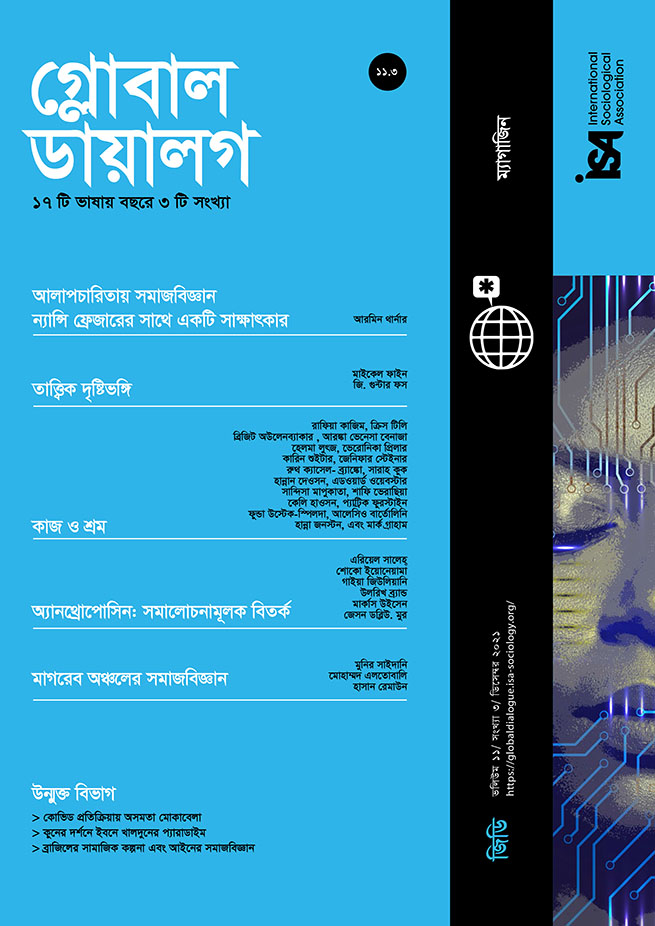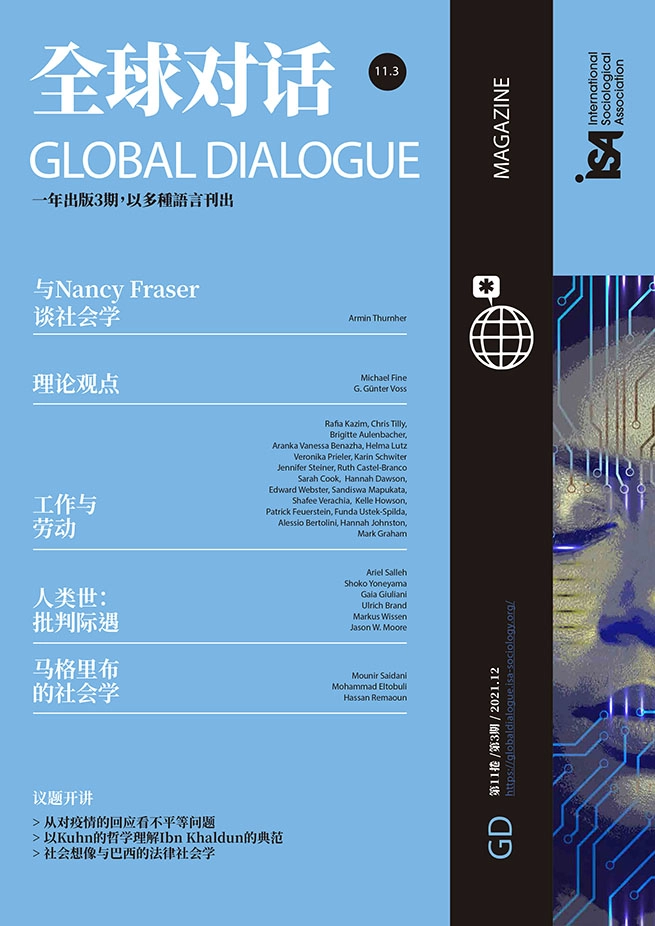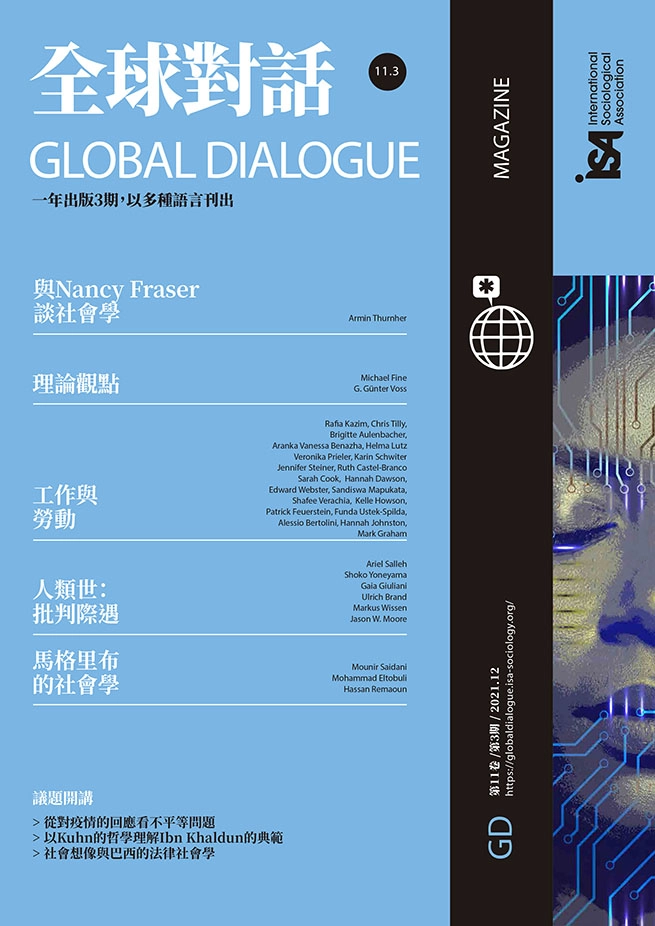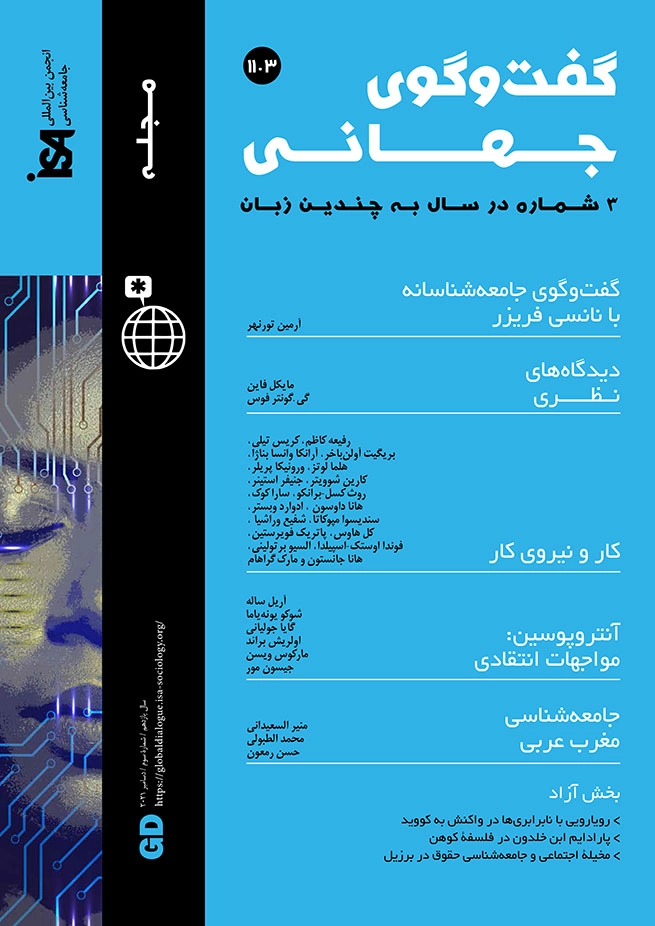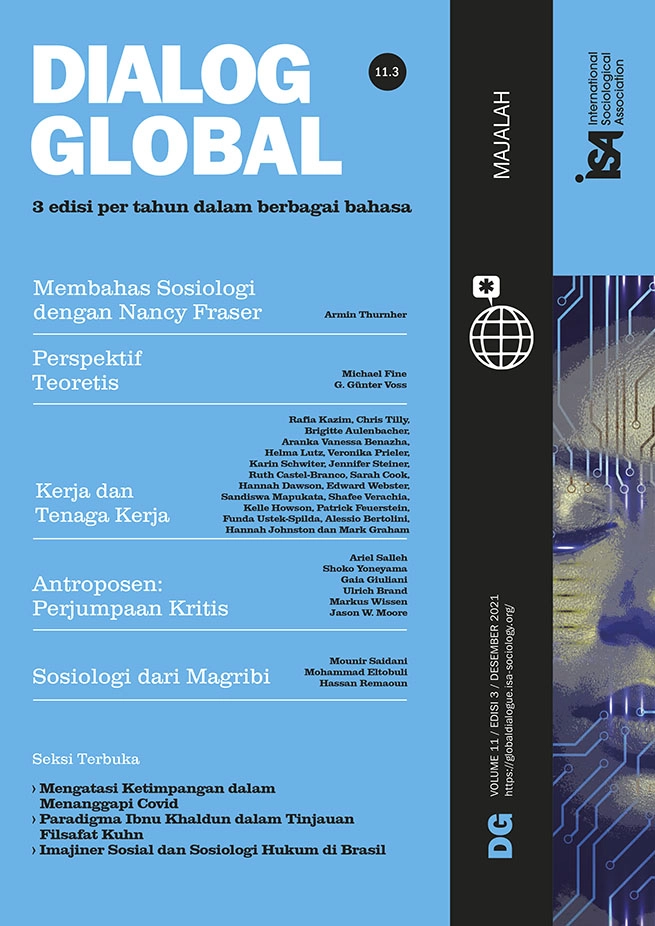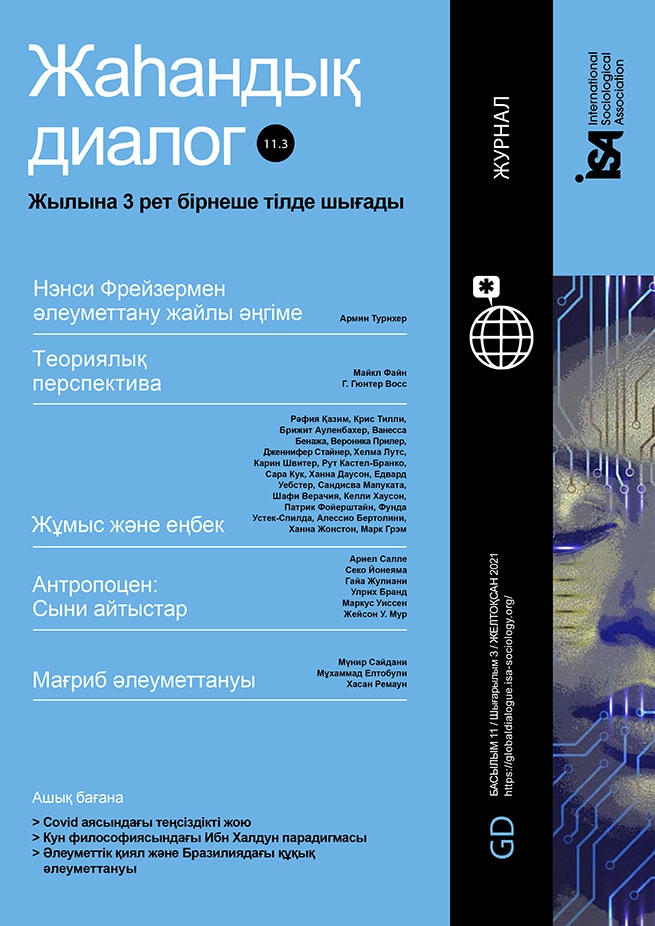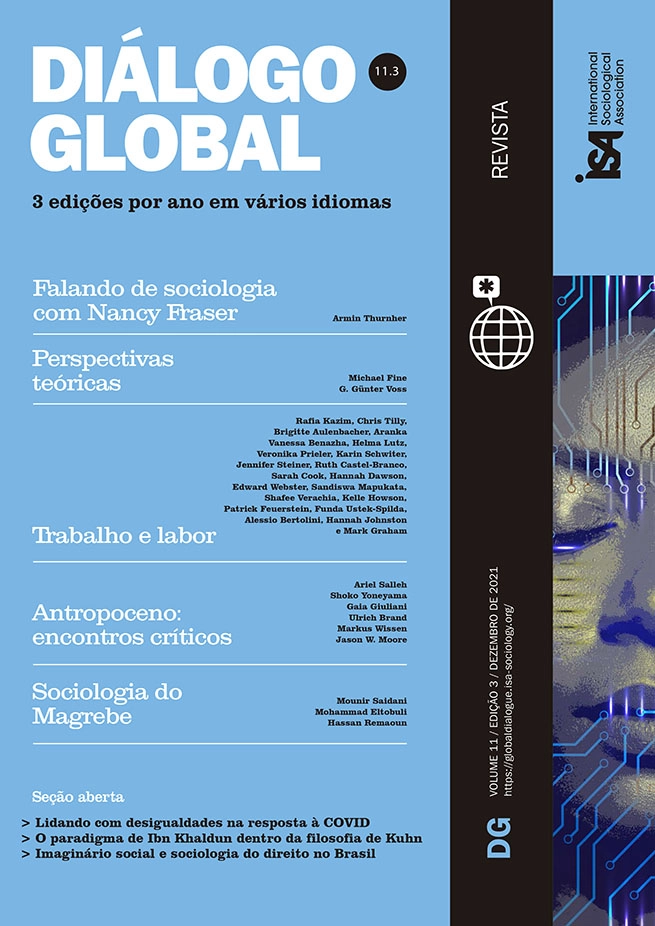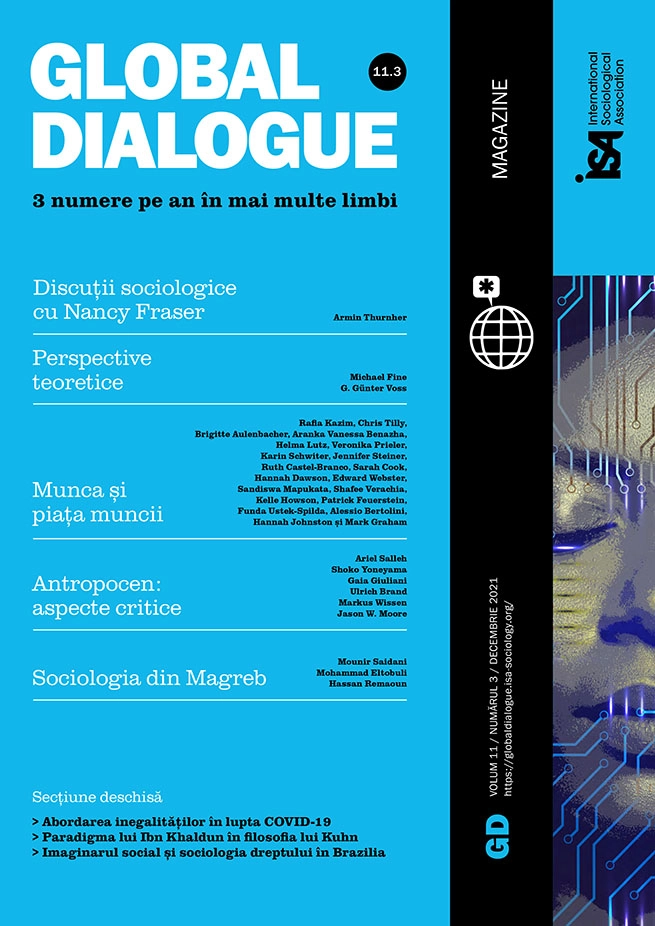The Pandemic as the Perfect Storm of Capitalist Irrationality An Interview with Nancy Fraser

November 05, 2021
In May 2021, Nancy Fraser, the renowned philosopher, critical theorist, and Henry A. and Louise Loeb Professor of Political and Social Science at the New School for Social Research, met Armin Thurnher, the founder and publisher of the important Austrian weekly Falter for a public interview. Nancy Fraser, as the first Karl Polanyi Visiting Professor hosted by the City of Vienna, the Central European University, the University of Vienna, the Vienna University of Economics and Business, the Vienna Chamber of Labor, and the International Karl Polanyi Society and Armin Thurnher, as a political journalist, talked about pressing issues of our times. This interview granted to Global Dialogue presents Nancy Fraser’s biographical experiences on the left and her analysis of capitalism and the pandemic.
AT: Nancy Fraser, how does an American political philosopher become a socialist? Obviously, you are a member of the ’68-Generation, but not many of that generation became socialists. How did it happen?
NF: I grew up in Baltimore, Maryland, during a period in which it was a Jim Crow city, racially segregated by law. As a young child, that system seemed normal to me, even when things seemed off and I sensed something was wrong. But the eruption of the civil rights movement, the desegregation struggle suddenly caused me to reinterpret my childhood and family situation. My parents were Franklin Roosevelt liberals, yet I came to feel that they didn’t really live what they preached. I channeled all my rebellious teenage anger into the political sphere – first into the civil rights struggle, then into anti-Vietnam War struggle, and from there, following the standard path of my generation, into SDS (Students for a Democratic Society), feminism, and so on.
I’ll tell you one little anecdote about how I became a socialist. I was very involved in the draft resistance movement to the Vietnam War. We encouraged young American men to burn their draft cards and refuse to enter the army. In this intensely radical atmosphere, I became obsessed by reports about Buddhist monks in Vietnam who were burning themselves alive to protest the war. Just to tell you how crazy this time was, I was a young college student and I was literally walking around saying to myself: If you’re really against the war, how can you justify not burning yourself up? Fortunately, I happened to meet some Trotskyists, and they said, look, there’s another way (laughs). That was how I became a socialist and joined the socialist wing of SDS.
Later, I found that my original idea that there might be a socialist revolution within a short number of years in the United States was an illusion. But the values and the spirit of the New Left have remained very vital for me ever since. My basic moral intuitions and political commitments have not really changed. I hope I’ve become more sophisticated, and I think I know a lot more about what it means to develop those intuitions and perspectives. But ’68 remains crucial for me.
AT: What were your important teachers and academic influences?
NF: I studied first at Bryn Mawr College, which is an elite women’s college, and I went there to do classics, Greek, and Latin. My teacher was Richmond Latimore, the great poet and translator of The Iliad – I went there specifically to study with him. Then I switched quickly to philosophy, which captivated me, while still using the linguistic knowledge I was accumulating. But as the sixties unfolded, I came to feel that the classical education I was getting was not suited to the moment. My activist self took over. I really struggled with these two passions: the political and the intellectual. An important teacher, who helped me figure out how to do justice to both, and who is now my colleague at the New School, was Richard J. Bernstein. He introduced me to the Frankfurt School. The first book that I read from this tradition was Herbert Marcuse’s One Dimensional Man, which captured my sense of living in a society in which the conventional tropes for understanding the world were more of a mystification than a clarification.
AT: How did Karl Polanyi come into your biography? Did you find him interesting as a historian or as a counterpart maybe to Hayek whose ideology has become so dominant, although most people don't even know it exists?
NF: My initial encounter with Polanyi was during my student years at Bryn Mawr. I read The Great Transformation there for a political science course. But at that point, he did not make a great impression on me, because by then, I was focused on Marx, and I suppose that Polanyi paled in comparison. It wasn’t until many years later when I reread Polanyi that I realized what an amazing thinker he is, what a great treasure that book is. So I started teaching him. In the process of rereading and now teaching him, he made a huge impression on me. And I began to think of my worldview as revolving around “the two Karls,” Marx and Polanyi, each of whom has tremendous insights but also some blind spots. And I saw my project as integrating the insights of these two Karls into a single, more comprehensive framework that would overcome the blind spots. Actually, that’s not quite right. It’s not just the two Karls I’m focused on, but “two Karls plus,” where the “plus” means feminist theory, ecological theory, anticolonial and anti-imperial theory – none of which are adequately developed by Marx and Polanyi.
AT: Let’s talk about the pandemic. When we think about the pandemic we think of it as some kind of natural catastrophe, as something unforeseen which has nothing to do with anything humans made. After I read your text about it in your upcoming book, I see things a little bit differently. Please elaborate.
NF: Most of Cannibal Capitalism was written before the outbreak of Covid, but the book includes an afterword called “A perfect storm of capitalist irrationality and injustice.” That’s how I see the pandemic, as the point where all of the irrationalities and injustices of capitalism converge. At the outset I shared your initial view of the virus as a natural disaster. But I’ve since learned about what the epidemiologists call zoonotic leaps to human beings from other species. The virus that causes COVID-19 comes from bats, living in remote caves far from human beings. For a very long time, it never caused anybody any trouble. But something happened that brought these bats into contact with a bridging or intermediate species and then brought that species into contact with us. That’s how we got the virus. So the question is: What created these new proximities of species that had previously been distanced from one another? Well, two things: global warming and tropical deforestation, both of which have triggered massive migrations of species, which leave endangered or unsuitable species in search of new habitats where they can better survive. As a result, lots of distressed organisms that are trying to find new niches are brought into contact with other species that they’ve never had any previous contact with. And presto: new zoonotic virus transfer. That, by the way, is the same dynamic that precipitated previous corona virus outbreaks, such as SARS and MERS, as well as Ebola and AIDS. SARS was passed from bats to civets to humans. MERS from bats to camels to humans. It’s probable, although the science isn’t definitive, that COVID-19 was transmitted to us via pangolins or some other intermediary species. In every case, then, the triggering dynamic was global warming and tropical deforestation. So, what lies behind them? Capitalism. That’s the system that has brought us global warming by bombarding the atmosphere with greenhouse gases. And it’s also the system that is cutting down rain forests in order to make way for mining and cattle. COVID-19 is the child of capitalism. And it’s by no means the last pandemic that we’re going to face. Because these underlying causes continue. So, yes, the pandemic is natural, but it’s not only natural. It’s nature destabilized by capitalism.
AT: Also, capitalism, surprisingly enough, was very quick to develop a vaccine. And it becomes very creative through crisis. So isn’t that a point for capitalism on the other side?
NF: Yes and no. We think too much of health care in terms of individual treatment. But it also has an infrastructural side, and the pandemic has shed a light on that side. It’s shown how important it is to maintain health infrastructure – just as we have to maintain roads and bridges and physical infrastructure. Private firms now control the lion’s share of the world’s capacities to deal with health emergencies: the labor forces and raw materials, the machinery and production facilities, the supply chains and intellectual property. But they have no interest in the public good. What they care about is the bottom line, their profits and share price. We see this most clearly in the current struggle over intellectual property of the vaccine, which will determine whether it will be made available globally as a public good, as it should and must be if we’re ever going to get this virus under control. The privatization of public healthcare capacity has been a huge handicap in that effort.
Now I come to your defense of capitalism. Well, the first point is that a great deal of the work that enabled rapid vaccine development came from the public sector, from the US National Institutes of Health (NIH). I only know for sure about the United States side of this, but I suppose there have also been public contributions in other countries – certainly Cuba, China, and Russia, and perhaps also others. In any case, much of the preparatory work that made possible what we call the “Moderna” vaccine was done at the NIH. It’s like the Internet. The US Defense Department pioneered the Internet. It began as a public good. Then, of course, it got taken over by Google, and Facebook, Microsoft, Apple, and so on. In both cases, this technology was originally developed in the public sector. So, it’s by no means clear that capitalism deserves the credit. I would say science deserves the credit, and science can develop just as well through public support, as indeed, it often has.
AT: But the state has a problem, it is a victim of neoliberalization and nobody likes the state. Apparently authoritarian states like China (and democratic states who could isolate themselves and apply stronger measures, such as Australia and New Zealand) were successful in fighting the pandemic. In Europe, there are tendencies to overemphasize the danger for civil liberties over the measures for public health.
NF: If anything, this problem is even worse in the United States. The people who invaded the US Capitol building on January 6, hoping to prevent or delay the certification of Joe Biden’s victory in the presidential election, have a theory – encouraged by Trump – about what they call “the deep state.” They believe in some very bizarre and dangerous conspiracy theories, including Covid denialism, which, like climate denialism, says it's all a hoax, aimed at fostering more government control. These ideas have deep roots in our political culture, which is strongly individualist and libertarian. And this long-standing suspicion of the state has now been exacerbated to a fever pitch in the rightwing Trumpist populist ecosystem. As a leftist, I have plenty of objections to what states, above all the US state, have done, for example, invading Iraq and many other horrible things. I would much prefer to rely on international agencies, assuming they were competent and independent of the great powers. Unfortunately, that’s not our situation; the WHO is weak and may not have done its job in the best possible way. In any case, when you’re in a health emergency, as we are now, we have to rely on the existing public powers. And the countries that did best – and like you I would include China – are those where the population views public power in a relatively positive light. They may want a more democratic public power, but they’re not lunatic libertarian individualists. The US has always struggled to validate power as opposed to the market. The country rapidly vaccinated about one hundred million people, but the effort stalled due to vaccine hesitancy and resistance. Under these circumstances I am in favor of introducing vaccine passports. You want to go to a basketball game, you want to go to a theater, you need to show proof that you’ve been vaccinated – or proof of a valid medical exception. Now, that’s perhaps an infringement of individual liberty. But there are circumstances in which you need to create the right incentives. If it’s okay to ban smoking in restaurants and to fine drivers for not wearing seatbelts, then it’s okay to exclude vaccine refuseniks from indoor public gatherings.
AT: In this situation of uncontrolled, anti-state and anti-public communication, so to speak, with new social media as a worldwide force, how do you manufacture discontent or non consent, as opposed to manufacturing consent?
NF: I wouldn’t say that we manufacture discontent. I’d say, rather, that capitalism manufactured discontent. We’re in the midst of an acute, multi-dimensional global crisis, a general crisis of our whole social order. Covid is one aspect of this, but there are many others: economic, ecological, social, and political. In this situation, there is a widespread sense that our social system and our political leaders have failed us. Discontent is everywhere – and rightly so. Right-wing, authoritarian-exclusionary populism is one expression of this discontent – albeit one that badly mistakes its true causes and real solutions. Other, let’s say, better, forms of discontent exist as well: left-wing populisms and Bernie Sanders-type movements, which represent more rational, promising, emancipatory forms of discontent. So the discontent is there. But you’re right, it is interwoven with all sorts of processes, such as social media algorithms and influencers, which validate groupthink and consumerist lifestyles even in the midst of what looks to be wide defection from the neoliberal orthodoxy. So, it’s a complicated situation.
In any case, I myself don’t manufacture anything except some theory. And my hope is that the kind of theory I manufacture can help to clarify matters for people who are already in motion for their own reasons, in their own situations, facing their own impasses, which take different forms in different places for different populations. Many people really are in motion and are discontented. They want change and are experimenting with alternative understandings of the kind of change they want and alternative views about how to make it happen. I’m trying to intervene in this process by suggesting that many of the problems that are causing their discontent and their engagement can be traced back to one and the same thing: the design of capitalism as a social formation that is inherently primed to cannibalize nature, to scarf up the wealth and labor of racialized populations, to free-ride on care work and deplete our energies for sustaining our families and communities, and to hollow out the public powers we need to solve our problems. These are things that capitalism does non-accidentally, by virtue of its DNA. And so, my message is: take a look at this map of our social system and see where your discontent fits in and how it relates to the discontents of others. Understand that there’s a single source, a single common enemy. Let’s unite and fight.
Nancy Fraser <frasern@earthlink.net>


